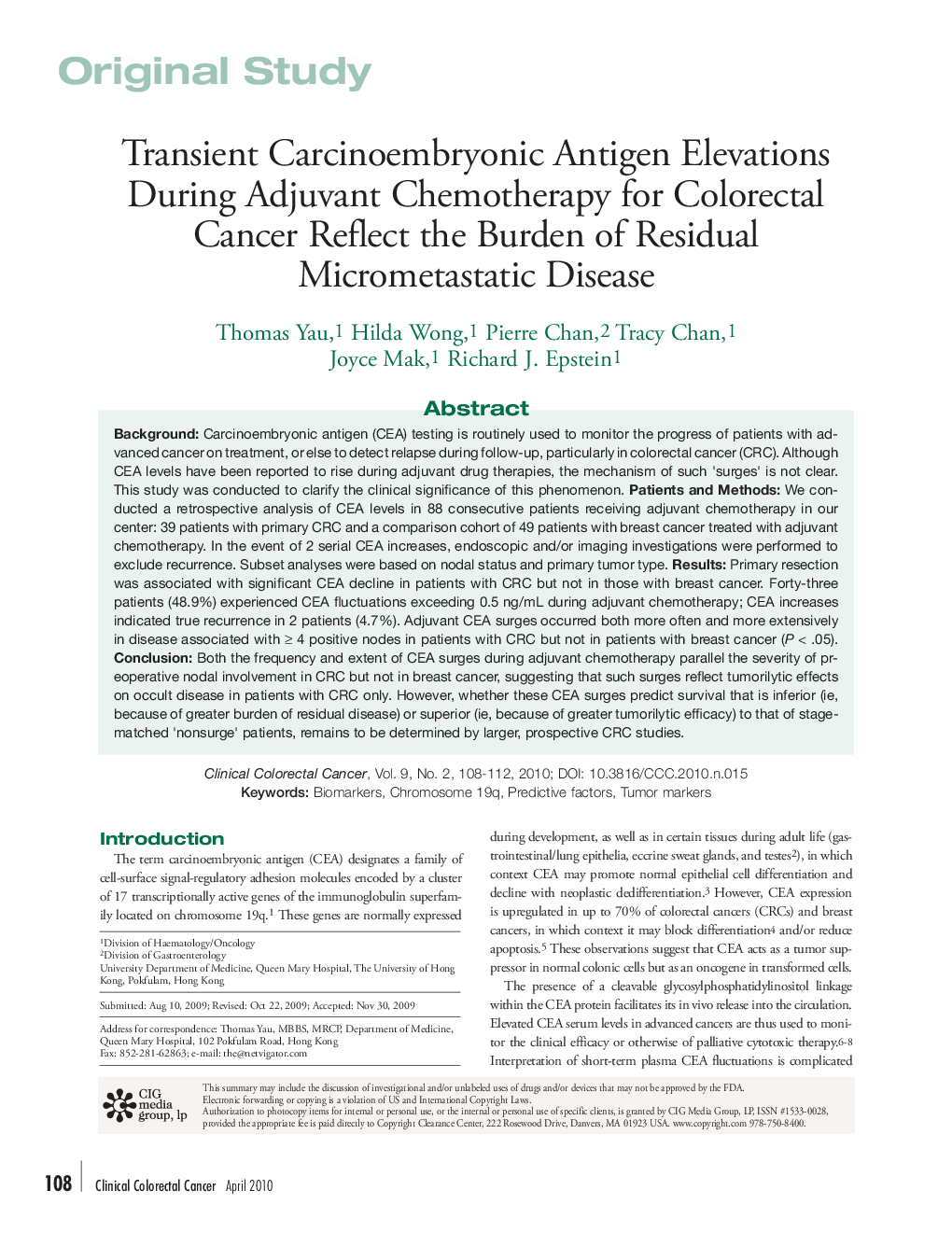| کد مقاله | کد نشریه | سال انتشار | مقاله انگلیسی | نسخه تمام متن |
|---|---|---|---|---|
| 2751714 | 1149487 | 2010 | 5 صفحه PDF | دانلود رایگان |

BackgroundCarcinoembryonic antigen (CEA) testing is routinely used to monitor the progress of patients with advanced cancer on treatment, or else to detect relapse during follow-up, particularly in colorectal cancer (CRC). Although CEA levels have been reported to rise during adjuvant drug therapies, the mechanism of such ‘surges’ is not clear. This study was conducted to clarify the clinical significance of this phenomenon.Patients and MethodsWe conducted a retrospective analysis of CEA levels in 88 consecutive patients receiving adjuvant chemotherapy in our center: 39 patients with primary CRC and a comparison cohort of 49 patients with breast cancer treated with adjuvant chemotherapy. In the event of 2 serial CEA increases, endoscopic and/or imaging investigations were performed to exclude recurrence. Subset analyses were based on nodal status and primary tumor type.ResultsPrimary resection was associated with significant CEA decline in patients with CRC but not in those with breast cancer. Forty-three patients (48.9%) experienced CEA fluctuations exceeding 0.5 ng/mL during adjuvant chemotherapy; CEA increases indicated true recurrence in 2 patients (4.7%). Adjuvant CEA surges occurred both more often and more extensively in disease associated with ≥ 4 positive nodes in patients with CRC but not in patients with breast cancer (P < .05).ConclusionBoth the frequency and extent of CEA surges during adjuvant chemotherapy parallel the severity of preoperative nodal involvement in CRC but not in breast cancer, suggesting that such surges reflect tumorilytic effects on occult disease in patients with CRC only. However, whether these CEA surges predict survival that is inferior (ie, because of greater burden of residual disease) or superior (ie, because of greater tumorilytic efficacy) to that of stage-matched ‘nonsurge’ patients, remains to be determined by larger, prospective CRC studies.
Journal: Clinical Colorectal Cancer - Volume 9, Issue 2, April 2010, Pages 108–112